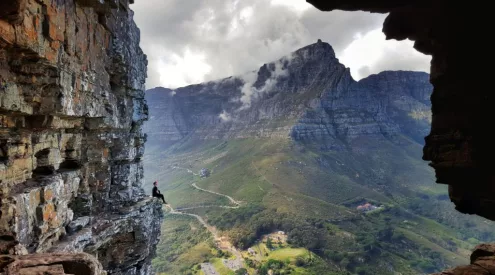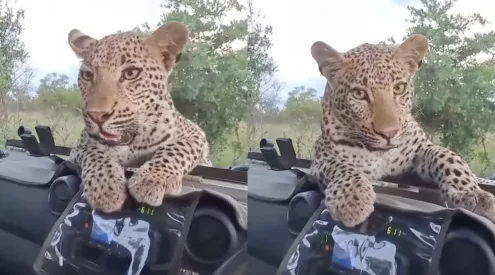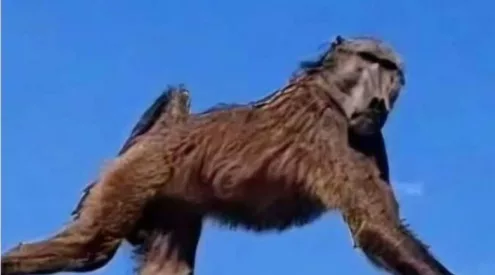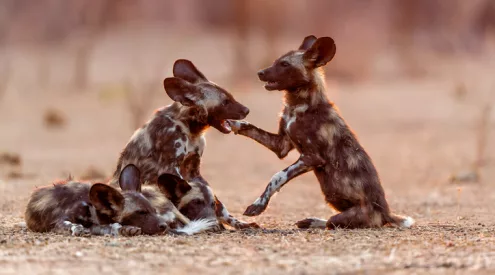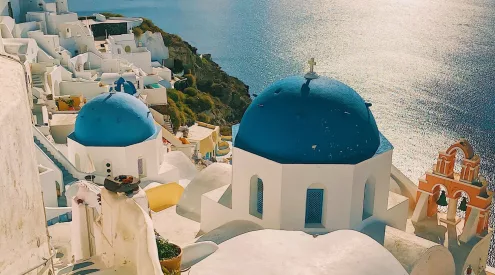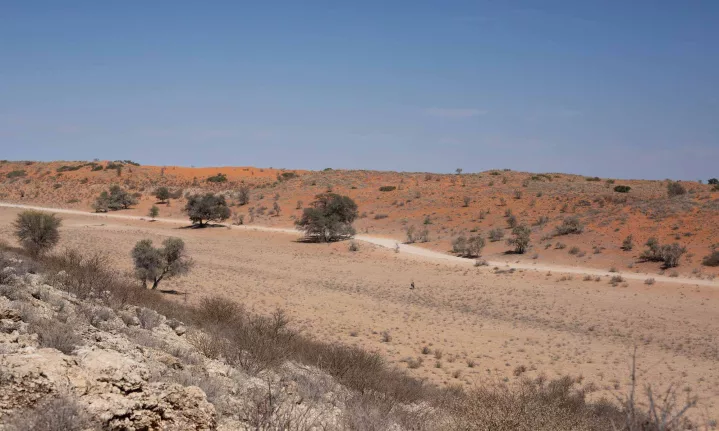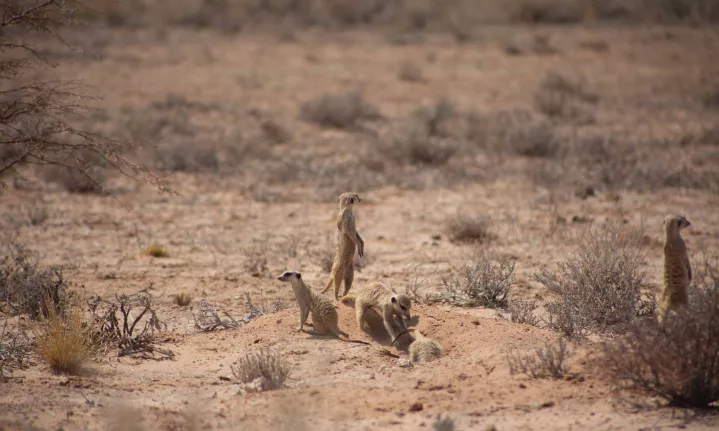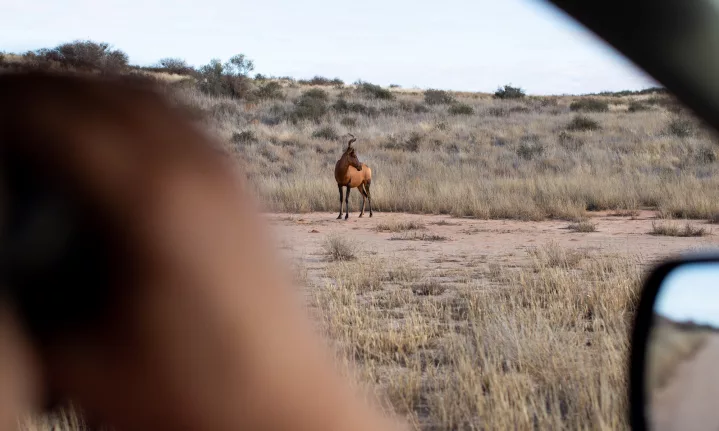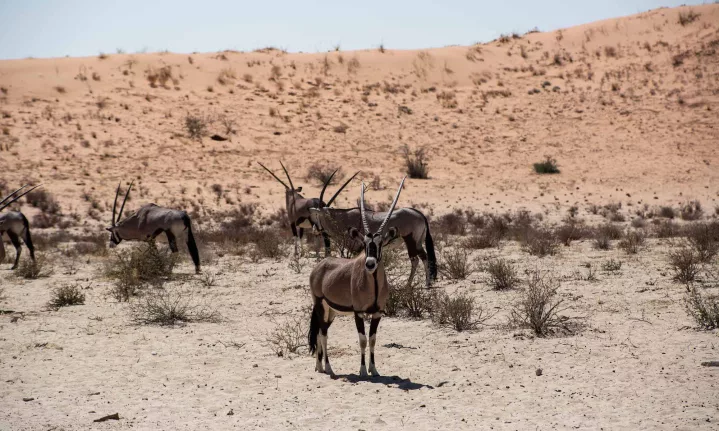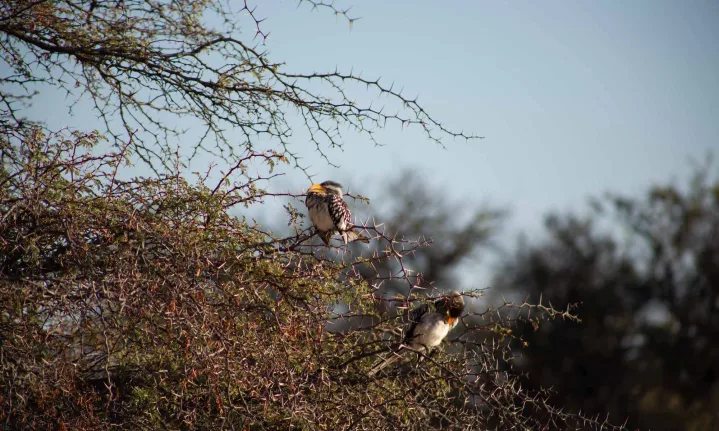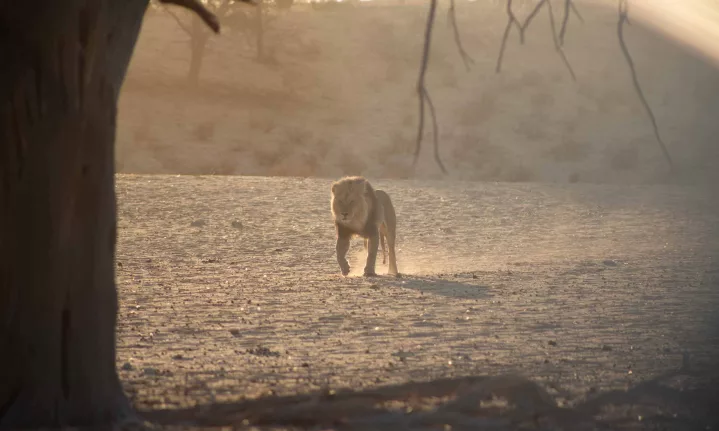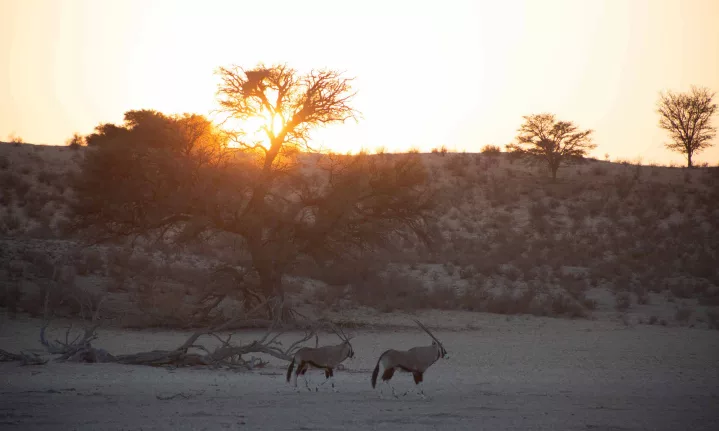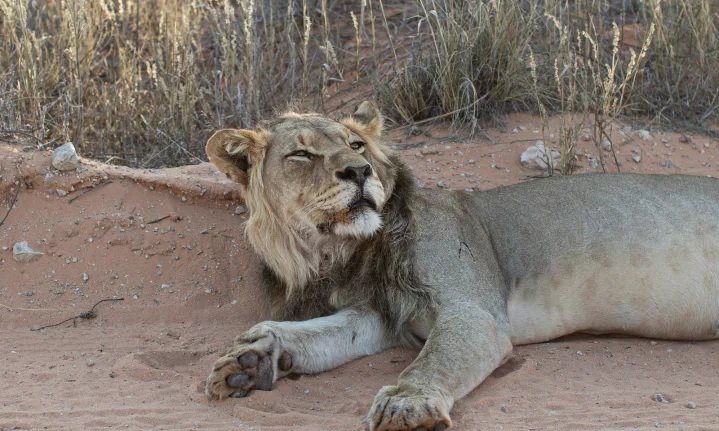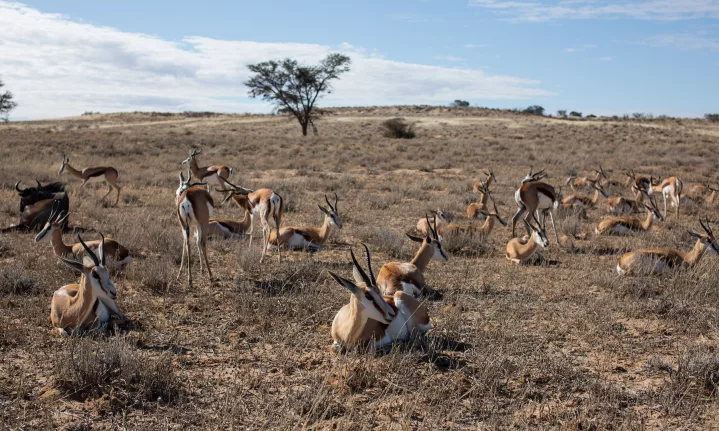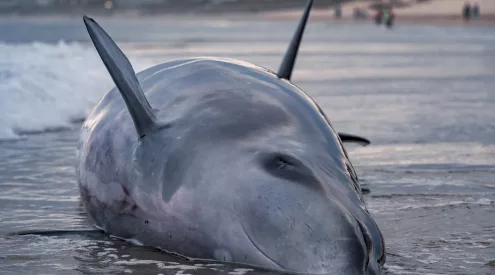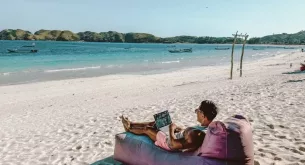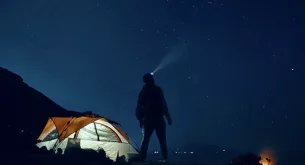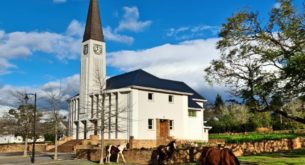The Kgalagadi Transfrontier Park is home to pans, dunes, dry riverbeds, and a diverse variety of wildlife.
Roads have been constructed in the dry riverbed as both the Auob and Nossob Rivers rarely, if ever, have any flowing water.
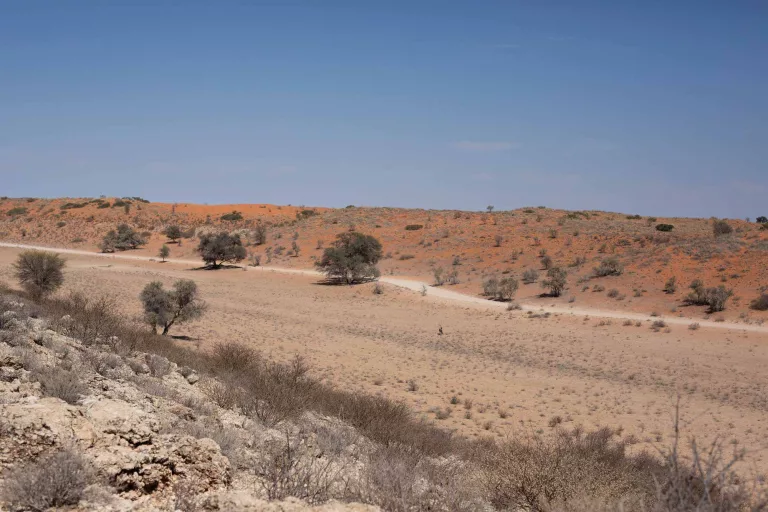
San and Khoi Khoi groups are some of the Kgalagadi Desert’s first known inhabitants. They adapted their lifestyles and cultures to the harsh and dry environment and relied on hunting, gathering, and limited livestock herding.
Dutch and British explorers ventured up to the northern region of South Africa and established limited contact with the indigenous groups. However, they were deterred by the desert conditions that the Khoi Khoi and San had adapted to.
World War 1
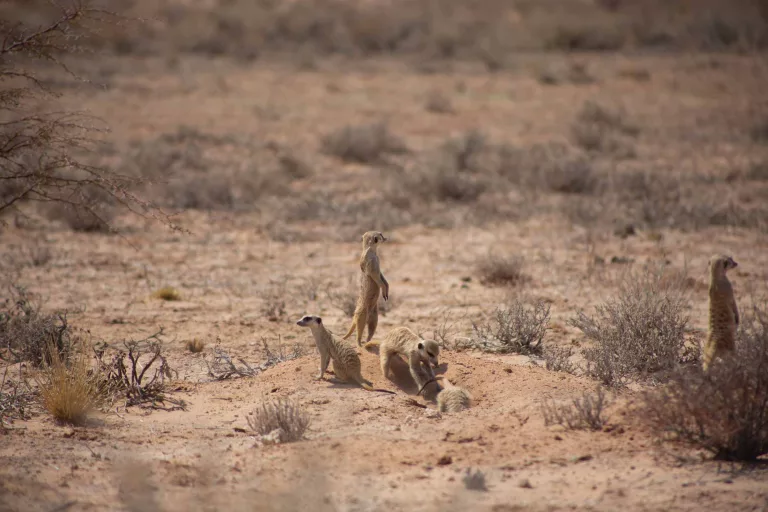
When World War 1 broke out, British troops used the Auob and Nossob Rivers as access points to the German South West Africa. They sunk boreholes into the rivers to supply water to their troops.
Scotsman Roger Jackson divided the Kgalagadi region into farmland, which is why many of the waterholes have Scottish-sounding names. The farmers struggled to produce a crop in the arid climate, and many turned to hunting the large herds of antelope to make a living.
Kgalagadi declared a national park
Minister of Lands Piet Grobler discovered how depleted the region had become of wildlife and made it his goal to declare the land between the two rivers the country’s second national park (after the Kruger).
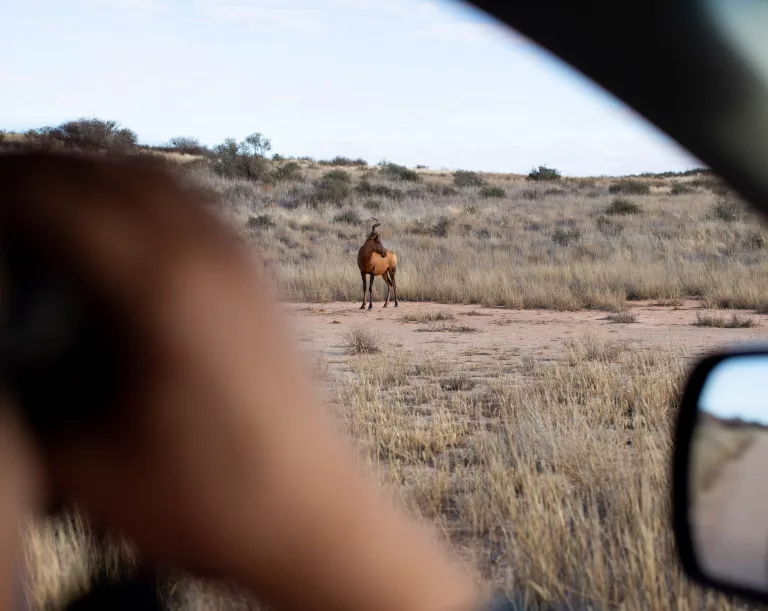
On 31 July 1931, the Kalahari Gemsbok National Park was officially established, and soon after, more land was added to the park.
In 1938, Bechuanaland (or Botswana) established the Gemsbok National Park, a bigger land area on the opposite side of the Nossob.
The two areas were run as a single unit, but authorities only agreed on naming it a transfrontier park in 1999.
On 12 May 2000, The Kgalagadi Transfrontier Park officially opened and is still one of the world’s biggest conservation areas.
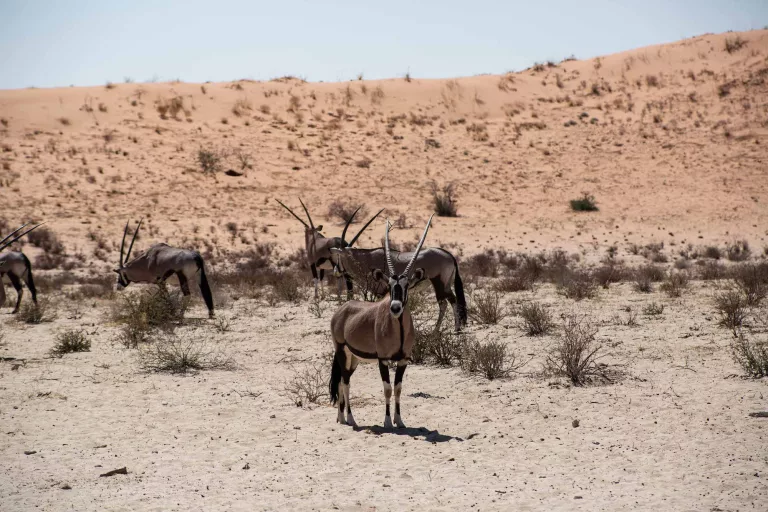
The Kgalagadi today
The Kgalagadi is described as one of the country’s ‘most out-of-the-way tourist attractions,’ but the experience is worth the journey.
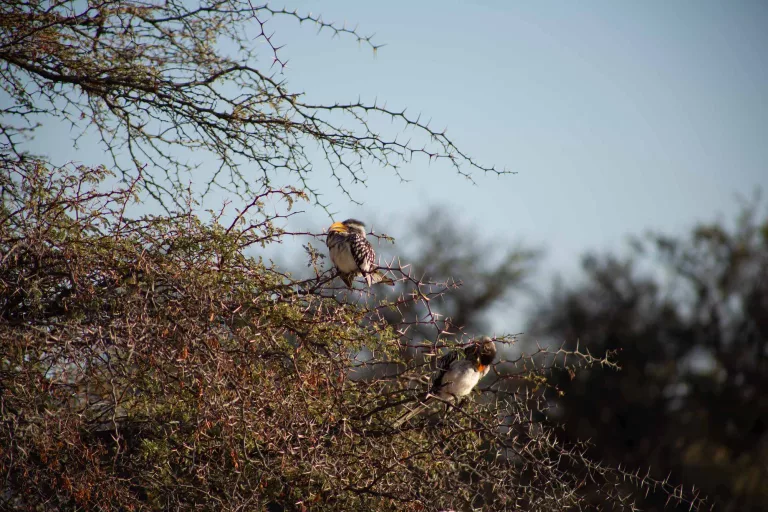
This South African side of the park boasts three traditional rest camps with camping facilities and accommodation, namely Twee Rivieren, Mata Mata, and Nossob.
There are six Wilderness Camps for overnight visitors and several private camps.
The roads are easy to navigate but are sandy and corrugated in some areas, so 4x4s are highly recommended.
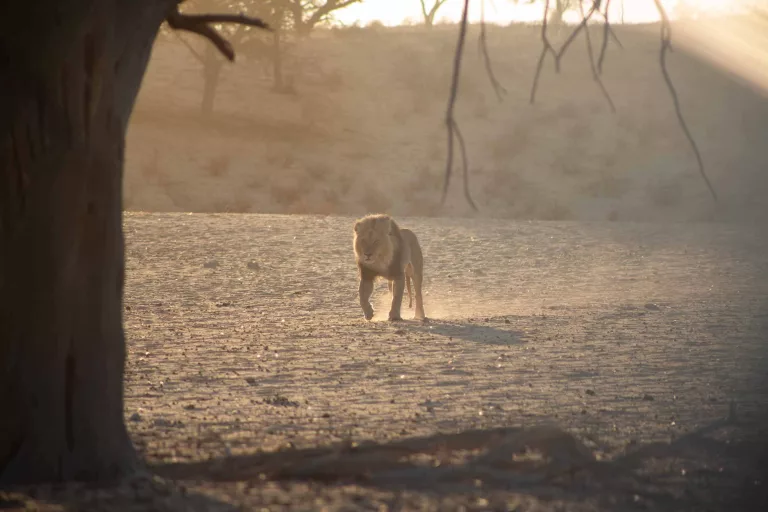
Although you won’t find rhinos, hippos, elephants, or crocodiles in the game reserve, twitchers can spend hours enjoying the diverse birdlife. The large herds of antelope are beautiful, and many visitors report close encounters (in their cars) with the big cats.
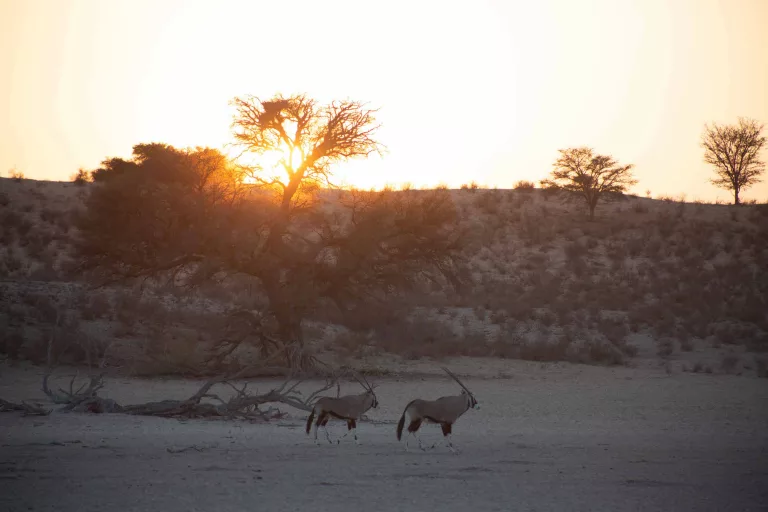
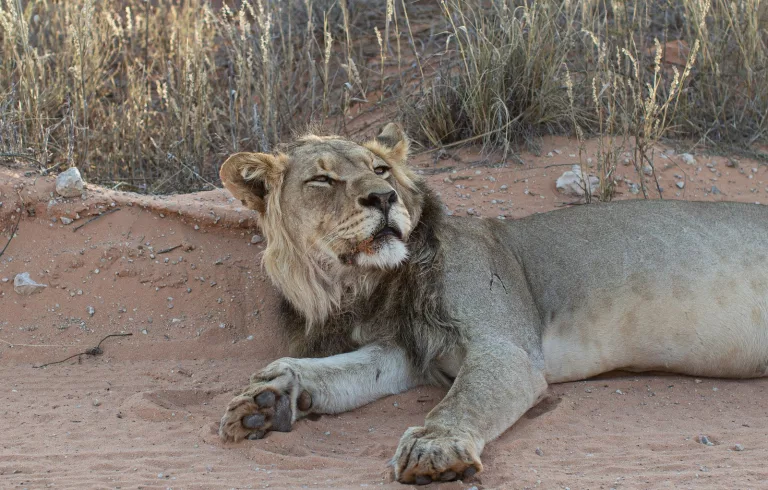
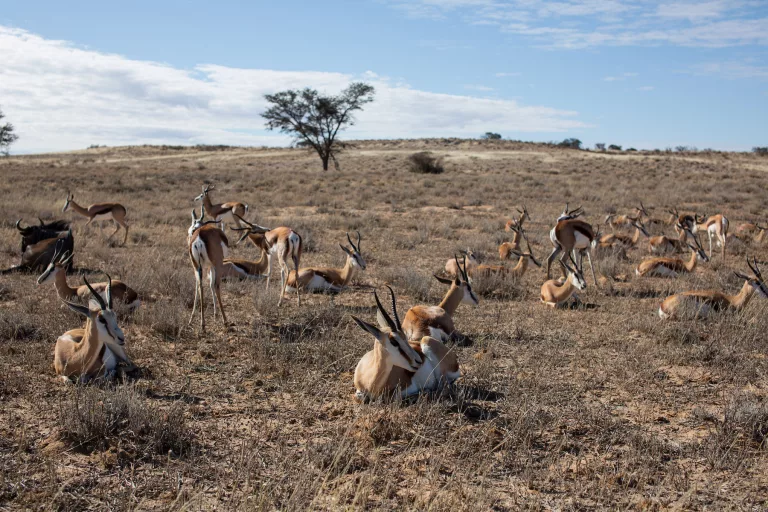
Pictures: Robynne Baudin/ intotheout_
Follow us on social media for more travel news, inspiration, and guides. You can also tag us to be featured.
TikTok | Instagram | Facebook | Twitter
ALSO READ: Brave buffalo mother sacrifices herself to save calf from lions

